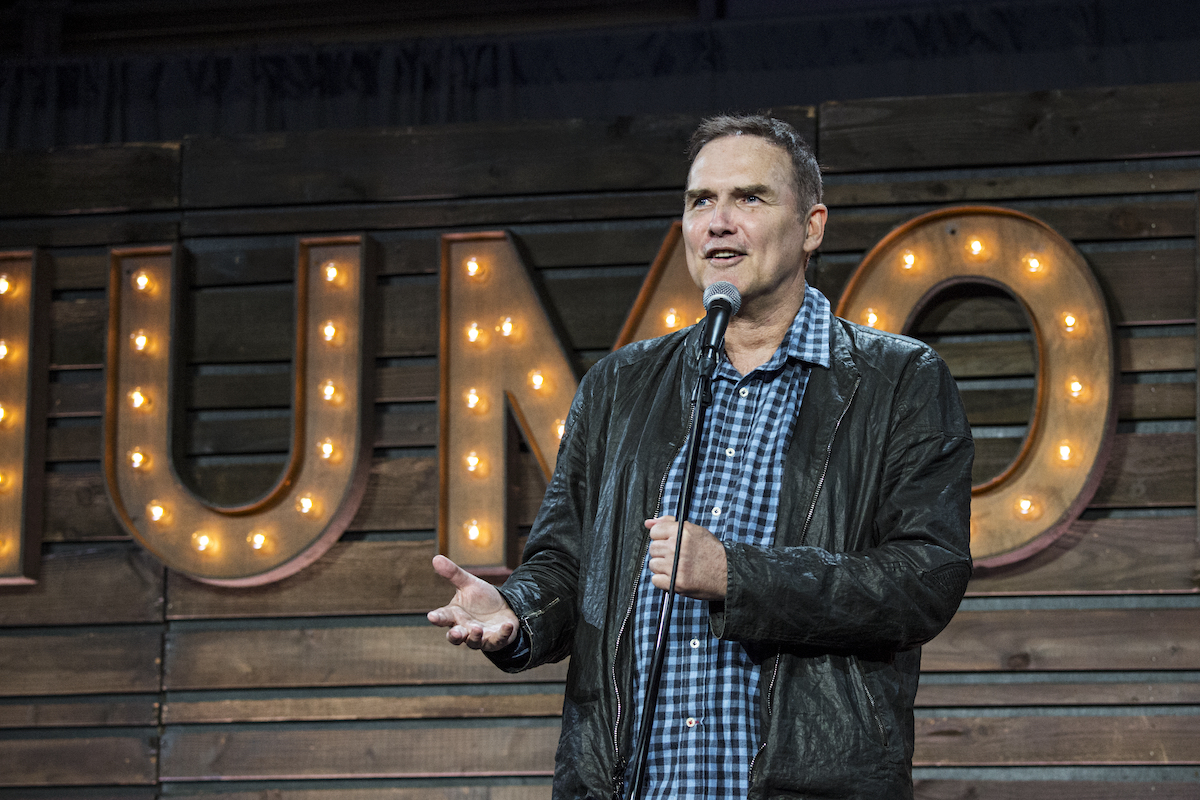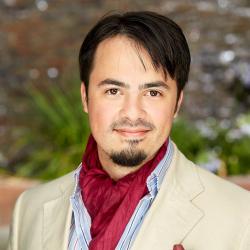Norm Macdonald was the funniest comedian in his time among those who stayed out of political controversies. His specialty was pointing out how uncomfortable we are facing the reality of our human limits, moral and intellectual, as opposed to the fantasies we embrace eagerly in our flight from mortality. He was never far from the Pascalian insight that our boredom and restlessness begin in our lack of self-knowledge. Viewed from this philosophical height, earthborn affairs such as politics seem uninteresting or petty, pathologies rather than achievements. Norm mocked such preoccupations in his time at Saturday Night Live, then left that style of comedy behind when he got fired for making one-too-many jokes about O.J. Simpson, a friend of one of the network executives.
Norm died last fall and now Netflix has released his last recorded comedy show, Nothing Special, on which he’s credited as writer, performer, producer, and director. The show has two unusual features. First, it was recorded in his home, during a COVID lockdown, so it’s Norm talking into a microphone, headphones over his baseball cap, staring into a computer camera; you can barely tell he’s in a shirt and coat, as though ready to perform in a club. But instead of hecklers or a crowd, we merely see the ordinary interruptions of any life: a dog barking, a phone ringing. The effect is powerful—the man is dead, yet he speaks directly to us, considering his mortality from a number of points of view, wondering first whether necessity, rationally understood, leads us to monstrous acts, then whether morality makes for happiness. Altogether, it’s a humanist reflection.
And second, it comes with a coda, a conversation about his talent among his most famous comic friends. The editing cuts from his sign-off to a room where David Letterman, Dave Chappelle, Conan O’Brian, Molly Shannon, Adam Sandler, and David Spade are watching the show and then proceed to talk about their friendship with Norm. This is a fitting testimony to the man, since he kept his suffering private, and his many fans were stunned by the sudden loss, unprepared to remember Norm and grieve.
Norm concerned himself with the lows of ordinary life and, in order to get away with it, he acted the part of a foolish old man, lest he seem preachy or pretentious. He was too insightful to lead an ordinary life, and perhaps his terrible problems—gambling is the example he uses in the beginning of this special—come from a great dissatisfaction with what is available to artists in America. I wouldn’t be able to prove this to you; it’s just my guess about his artistic preferences and his unhappiness. I think he suffered at the loss of the moral virtues of the earlier republic and was philanthropic at heart, always wanting to help people, finding it very hard to reconcile himself to the madness of our times. We laugh at Norm often because we don’t get the point. He was a master of plain-spoken absurdity or, at any rate, obscure remarks that are at the same time obvious.
Perhaps Norm thought our ordinary lives really are both obviously insightful and endlessly obscure—we don’t quite know why we do what we do, whenever we stop to raise the question, and we don’t even know when or why we might stop to ask ourselves such a question. His comedy has the character of that confused exploration that is the beginning of self-knowledge, but at the same time a rejection of what we recognize as problematic in our lives. He knew better perhaps than other comedians that we are ashamed—both because we don’t understand ourselves and because we suspect that what we would understand with some effort is nothing to be proud of—so we laugh.
Norm’s worries about America and his insights develop as a sequence of rants without obvious connections but that suggest the big questions he tried to figure out by reading great literature, Russian novelists especially. He’s interested in gambling because it shows how irrational hope is and how little we care about justice and earning the good things we want. Ultimately, gambling illustrates our fear that life is random, because the great victories or losses in life are a matter of chance. So it makes perfect sense to move from casinos to airplanes crashing—luck and necessity, certainty and risk, our lack of awareness of our unhappy situation in an indifferent cosmos. It really is uncanny that we get bored on airplanes, neither afraid of death nor even aware of the amazing power of the machine.
Norm uses a phrase about gambling that should have been the title of the show: “The unraveling of a system.” We convince ourselves that we will win, that we know how life works and can outsmart our problems. When he starts talking about death on an airplane, Norm interrupts himself to talk about the shocking changes in American morality. Our heroes were once WWII veterans; now they’re transgender victims of their own psychic damage. I think his point is not just that we’re gambling with America, but that these ideologies are nothing but gamblers’ systems, the rationalizations of confused, even mentally ill people. Progress, in a sense, is merely a matter of piety, although it pretends to be scientific, asking for all sorts of sacrifices and crazy commitments against the promise of some future perfection or present damnation. At any rate, it produces not virtuous people but damaged goods pretending to be healthy.
Norm moves on from the airplane crash to cannibalism: if we admit that our belief in our safety is more hope than reason and begin to take our mortality seriously, to feel endangered existentially, we’re likely to behave, or at least think about each other, with a cruelty that only extreme fear can arouse. Perhaps he means, we would want to blame someone else for our problems or lack of control. But it’s also because we would rather survive than perish. We become entrapped mentally in something like a state of war that wallows in a rational evil, endless enmity. You’ll have to judge for yourself whether we should be worried about these developments in our own times—maybe that’s why Norm brings up this problem just now.
Norm praises the simplicity of the simple—he jokes about people who pity those with Down syndrome instead of envying their happiness—and prefers the more virtuous past to the sophisticated, opinionated, and unforgiving present. He also praises his loving mother and suggests modern psychology makes it impossible to love our mothers because it continuously looks for some low, possibly subhuman motive for our actions. As for fame, he disclaims any claim to it: “They say the comedian is the modern-day philosopher. Which, first of all, makes me sad for the actual modern-day philosophers.” Norm is respectful of learning and the learned, but in fact there are no philosophers left in America. Our public intellectuals and popular writers are not really impressive because unequal to the times. We take whatever counsel we can find in this confusing moment—Norm himself turned to faith in Christ to make sense of his hopes and weaknesses—when we don’t know what words mean or what comedy is, especially if we define comedy as what resides in that gap between who we are in reality and who we think we are or strive to be.
Norm, I think, was trying to help even in his time of death, and wanted this comedy show to remind people of things more important than comedy—faith and charity. Once you hear his friends talk about his death, you can see all the hints about his own suffering in the show: that’s the moral impulse behind making comedy, making the best of our human predicament, which often ends in tears.

